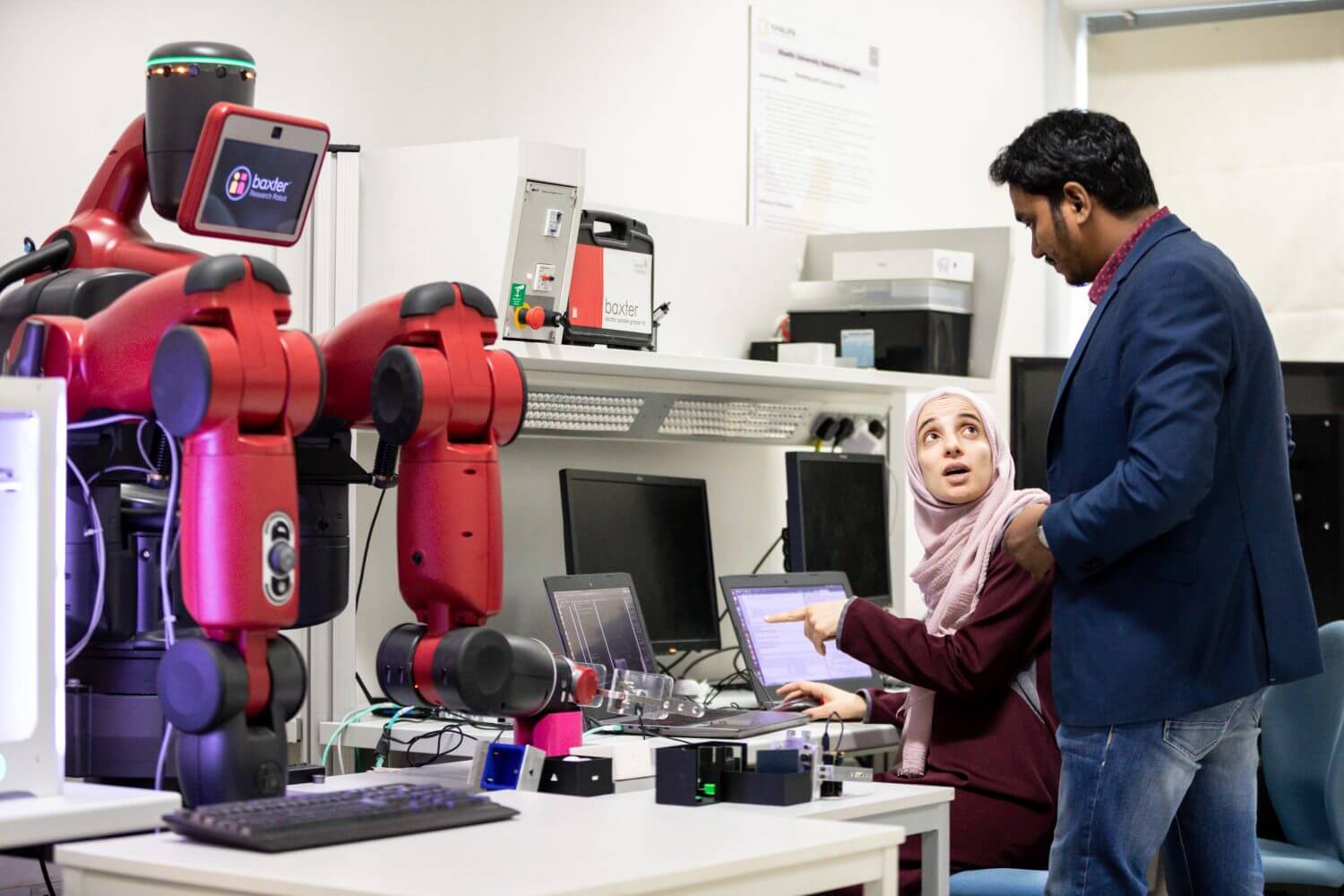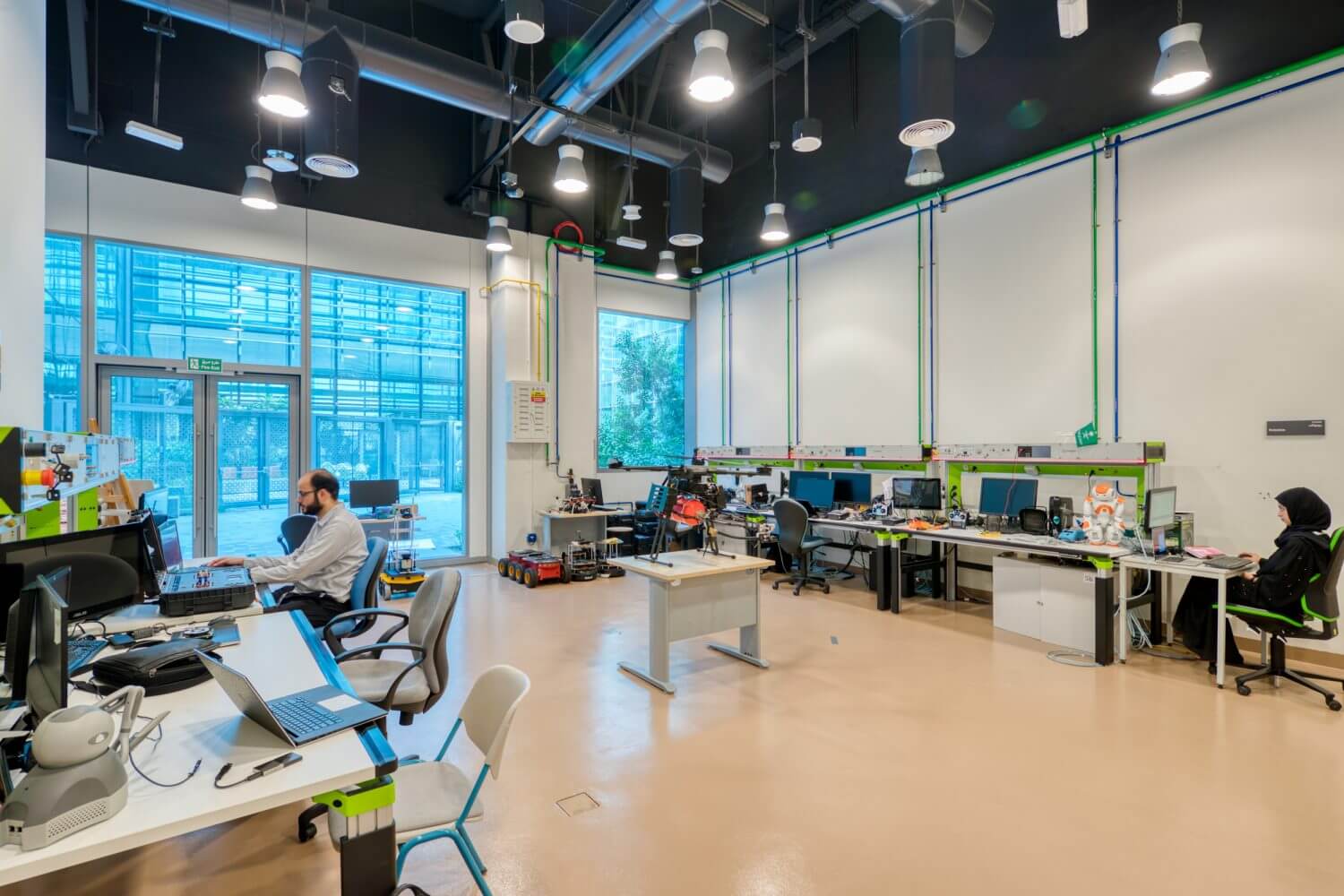KUCARS research is focused on complementary themes, each hosting two broad and discrete projects.
These themes and projects address some of the frontier robotics challenges. They will address, in an integrative manner, some of the key technology challenges in robotics, including robust autonomy in dynamic and unstructured environments, sensing and artificial perception, embodied artificial intelligence, sense and avoid, GPS denied navigation, vision based control and 3D tracking, high disturbance rejection control, smart design, and human-robot interactions.

